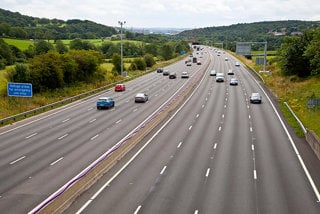It’s been a year of upheaval for the fleet industry. A new emissions testing regime, a lack of clarity over company car tax rates, air quality restrictions, the demonisation of diesel and Brexit have all played their part.
The events of the past year look set to shape the industry for years to come, while a whole host of questions remain unanswered to enable fleet operators to plan with complete confidence for the future.
Almost half (48.3%) of respondents to a Fleet News poll said the publication of new company car tax rates, rather than any other issue in 2019, will have the greatest impact on fleet operations going forward.
Air quality and the environment have also proved a challenge for fleets during the past year.
Politicians continue to debate when the sale of new petrol and diesel vehicles should end, with one-in-four fleets (25.9%) believing this will be most impactful, while one-in-seven (13.8%) argue it is the introduction of clean air zones (CAZs) that will force the greatest change.
Just one-in-14 (6.9%) said Brexit will create the greatest upheaval, twice as many as the 3.4% who believe the realignment of used car values, which saw a series of falls for ex-fleet stock, will change fleet operations the most.
Here we look back at the key events of the year:
NEDC Vs WLTP
Initial evidence provided by manufacturers suggested that more than half of cars would see an increase from NEDC-correlated CO2 figures to the new WLTP value of between 10% and 20%.
In its response to the consultation, which closed in February, fleet body ACFO called for Government to realign benefit-in-kind (BIK) tax bands to smooth the transition to WLTP or consider a ‘grandfathering’ of cars registered prior to 2020 to account for the rise in CO2.
HM Treasury refused to say whether new rules would be included in the Chancellor’s Spring Statement in March. Instead, officials would only say the Government would “respond (to the consultation) in due course”.
It would be a further five months before fleet decision-makers, company car drivers and the wider fleet industry would hear back from the Government.
In the meantime, they would have to contend with the opening of London’s ultra-low emission zone (ULEZ) and a multitude of other cities consulting on their own version of a clean air zone (CAZ).
There was also the ongoing threat of a ‘no deal’ Brexit, with the potential to increase the costs of day-to-day fleet operations.
IMPACT OF NO DEAL BREXIT
Fleets were being warned they could face price increases and longer lead times for vehicles and spare parts if the UK left the EU without a deal. MPs were hoping to delay Brexit beyond March 29, if the Government failed to win a majority for its deal, in an attempt to take ‘no deal’ off the table.
The Society of Motor Manufacturers and Traders (SMMT) warned World Trade Organisation (WTO) rules would impose a 4.5% tariff on parts and 10% on finished cars crossing into and out of the EU. This, it said, could result in an average £1,500 uplift to sticker prices, if brands and retailers were unable to absorb these additional costs.
Europe’s second largest car manufacturer, PSA Group, which owns the Peugeot, Citroën, DS, Opel and Vauxhall brands, told Fleet News there could be an impact on pricing.
Meanwhile, in a memo to its fleet customers, seen by Fleet News, Zenith revealed Volkswagen Group UK had advised the leasing company it would reserve the right to increase prices in the event of a ‘no-deal’ Brexit.
Nine months later and, despite ‘no deal’ avoided on two separate occasions, fleets still don’t know how the UK’s future trading relationship with the EU will impact their bottom line.
COST OF IMPROVED AIR QUALITY
Further clarity is also needed on how local authorities in different cities across the UK intend to improve air quality and how much this will cost.
Days before the launch of London’s ULEZ in April, the fleet industry called for more support to help businesses comply with air quality restrictions.
Fleet News revealed that more than 60 towns and cities were considering new measures to tackle pollution, including the introduction of CAZs.
In a survey of industry experts for its Industry Outlook 2020 report published this month, the British Vehicle Rental and Leasing Association (BVRLA) say respondents all agreed that the Government must do more to harmonise CAZ operations, but they saw little evidence of this.
It also warned if Bristol’s plans to ban diesel vehicles altogether were approved, this could open the floodgates for other cities to follow suit.
Parts of the UK will become far more complex operational landscapes for fleets, particularly national commercial fleets in 2020. Yet, they still face a huge number of unanswered questions when it comes to details of how CAZs will register vehicles, administer charges and obtain exemptions.
Alphabet chief executive officer Nick Brownrigg told the BVRLA: “The Government could take more of a stake in the clean air zones and ensure consistency and understanding. Failure to do so would be an abdication of responsibility.”
DECLINES IN RV PERFORMANCE
The residual value (RV) performance of former fleet cars is a long-standing conundrum for the fleet industry, unlike the more recent challenge posed by air quality.
In June, Cap HPI tried to reassure the market by saying it did not expect a repeat of the turmoil experienced in the used car market in 2008, despite reporting the largest decline in used values for almost five years.
Twelve years ago, the UK was in the grip of a recession sparked by the banking crisis, which saw used car values and vehicle leasing company profits plummet.
During spring 2019, used car values experienced the heaviest monthly drop since December 2014 and the steepest fall in the month of May since 2012. On average, used values fell 3.1% in May at the three-year, 60,000-mile point. It followed a 2.3% drop during April, which represented a significant realignment in used car values.
Derren Martin, head of UK valuations at Cap HPI, told Fleet News: “The vast majority of cars were not immune to substantial reductions.”
COMPANY CAR TAX RESPONSE
In July, the wait was finally over for the Government’s response to its consultation on company car tax, while previous tax hikes appeared to have taken their toll on employees receiving the benefit.
New data published in the summer showed that the amount of tax the Government takes, on average, from company cars had increased by 9% year-on-year.
Revenues from company car tax and National Insurance Contributions (NICs) had increased by £70 million year-on-year, despite there being 50,000 fewer company car drivers.
HMRC data showed the number of employees paying BIK on a company car had fallen from 940,000 to 890,000, but insisted the impact of voluntary payrolling could account for a “significant proportion” of the decline in reported numbers.
In an effort to avoid drivers being hit with further rises from WLTP, HM Treasury announced it was binning previously published BIK rates for 2020/21 in its long-awaited overhaul of company car tax.
In their place, it revealed two new BIK tables for company car drivers: one for those driving a company car registered after April 6, 2020, based on WLTP CO2 figures, and one for those driving a company car registered before the same date, based on NEDC-correlated CO2 figures.
The most eye-catching announcement was a new zero percentage rate for pure electric vehicles (EVs) in 2020/21, meaning company car drivers would pay no BIK.
It will be up to the new Government to adopt the new rates into law so they can used from April 2020.
SURGE OF EV ORDERS
The publication of the new rates resulted in a surge in EV orders by fleets to leasing companies, as reported by Fleet News.
Lex Autolease said orders for pure electric cars had increased by 123% in the two months following the announcement. Zenith reported an even bigger surge in pure electric vehicle (EV) orders, up 211%, while Alphabet and Total Motion both reported double digit increases.
However, concerns were raised over product availability, which the BVRLA is now also reporting could hamper the transition to zero-emission vehicles.
It says almost every respondent to its survey predicts that getting hold of sufficient pure electric vehicles will be a major concern in 2020.
While some EVs are available in volume, the latest, highest-range models are in scant supply, it says. Brexit is cited as the main cause, with manufacturers accused of diverting their prized new products to more profitable markets on the continent.
END OF ICE FOCUS
The switch to EVs has been brought sharply into focus by the desire to end the sale of conventional diesel and petrol cars.
Fleet News reported how fleet decision-makers were split over when the sale of new diesel and petrol cars and vans should be phased out, or whether it should happen at all.
Half (50.4%) of respondents to a Fleet News poll said they were against the Government introducing a ban on fossil fuels. However, almost a third (31.2%) said they wanted a more ambitious target than the policy of making all cars and vans zero-emission-capable by 2040.
UNCERTAINTY REMAINS
The year ended much as it had begun, with uncertainty over future company car tax rates.
The new BIK tables were expected to be rubber stamped in the Autumn Budget, ahead of coming into force from April 2020.
However, continuing deadlock over Brexit put the new company car tax rates and the required legislation on hold, after the Government decided to go to the polls.
Fleet decision-makers will hope that they receive clarity on this and a range of other issues impacting fleet operations in 2020, with the Tories winning a majority in the General Election.
To read how Alfonso Martinez, managing director of LeasePlan UK, expects increased emphasis on data-driven decisions in the New Year, click here.
To read about this year’s ‘movers and shakers’, go to www.fleetnews.co.uk/movers-and-shakers-2019.






















Login to comment
Comments
No comments have been made yet.